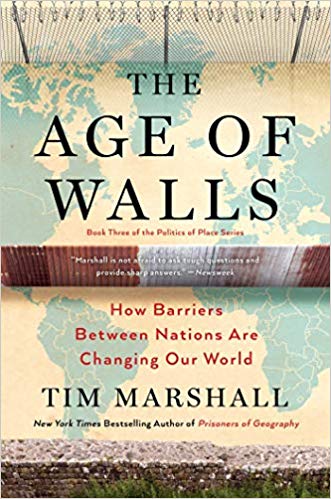Search Results: Returned 7 Results, Displaying Titles 1 - 7
-
-
-- Progress and backlash from 1600 to the present2024., Adult, W.W. Norton & Company Call No: NEW 303.64 Z11a Edition: First edition. Availability:1 of 1 At Your Library Summary Note: The CNN host and best-selling author explores the revolutions--past and present--that define the polarized and unstable age in which we live. Populist rage, ideological fracture, economic and technological shocks, war, and an international system studded with catastrophic risk--the early decades of the twenty-first century may be the most revolutionary period in modern history. But it is not the first. Humans have lived, and thrived, through more than one great realignment. What are these revolutions, and how can they help us to understand our fraught world? In this major work, Fareed Zakaria masterfully investigates the eras and movements that have shaken norms while shaping the modern world. Three such periods hold profound lessons for today. First, in the seventeenth-century Netherlands, a fascinating series of transformations made that tiny land the richest in the world--and created politics as we know it today. Next, the French Revolution, an explosive era that devoured its ideological children and left a bloody legacy that haunts us today. Finally, the mother of all revolutions, the Industrial Revolution, which catapulted Great Britain and the US to global dominance and created the modern world. Alongside these paradigm-shifting historical events, Zakaria probes four present-day revolutions: globalization, technology, identity, and geopolitics. For all their benefits, the globalization and technology revolutions have produced profound disruptions and pervasive anxiety and our identity. And increasingly, identity is the battlefield on which the twenty-first century's polarized politics are fought. All this is set against a geopolitical revolution as great as the one that catapulted the United States to world power in the late nineteenth century. Now we are entering a world in which the US is no longer the dominant power. As we find ourselves at the nexus of four seismic revolutions, we can easily imagine a dark future. But Zakaria proves that pessimism is premature. If we act wisely, the liberal international order can be revived and populism relegated to the ash heap of history. As few public intellectuals can, Zakaria combines intellectual range, deep historical insight, and uncanny prescience to once again reframe and illuminate our turbulent present. His bold, compelling arguments make this book essential reading in our age of revolutions.
-
-
-- How barriers between nations are changing our world.2018., Adult, Scribner Call No: 320.905 M367a Edition: First Scribner hardcover edition. Availability:1 of 1 At Your Library Series Title: Politics of place Volume: book 3.Summary Note: Walls are going up. Nationalism and identity politics are on the rise once more. Thousands of miles of fences and barriers have been erected in the past ten years, and they are redefining our political landscape. There are many reasons why we erect walls, because we are divided in many ways: wealth, race, religion, politics. In Europe the ruptures of the past decade threaten not only European unity, but in some countries liberal democracy itself. In China, the Party's need to contain the divisions wrought by capitalism will define the nation's future. In the USA the rationale for the Mexican border wall taps into the fear that the USA will no longer be a white majority country in the course of this century. Understanding what has divided us, past and present, is essential to understanding much of what's going on in the world today.
-
-
c2014., Adult, Random House Call No: 327.59 K175a Edition: 1st ed. Availability:1 of 1 At Your Library Summary Note: An examination of the future role of the South China sea in international relations and a tour of the the nations surrounding the South China Sea and their interests in the region. In exploring each of these countries individually, Kaplan clearly shows where the conflicts may arise and why they will be challenging for the international community.
-
-
c2005., Éditions La Découverte Call No: REF FR Geography World Availability:1 of 1 At Your Library Series Title: Collection L'État du monde
-
-
2019., University of Regina Press Call No: QWF 327 S679f Availability:1 of 1 At Your Library Summary Note: In the summer of 1968, Mary Soderstrom and her husband loaded up their VW Beetle and immigrated to Canada from the United States. The contrast between their new home and their old led to a long-running reflection on what makes the two countries different. How could two places that are similar in so many ways be so disparate in others? In Frenemy Nations, Soderstrom answers this question by addressing a range of geographical "odd couples": including the United States and Canada; New Hampshire and Vermont; Alberta and Saskatchewan; Haiti and the Dominican Republic; Scotland and Ireland; Rwanda and Burundi; and more. Through it all, Soderstrom shows how tiny differences--in geographic features, colonial histories, resource competition, education, women's roles, language, and migration--can have outsized effects on how polities develop.
-
-
-- End of the American era.c2009., John Wiley & Sons Call No: 330.973 P199w Availability:1 of 1 At Your Library











